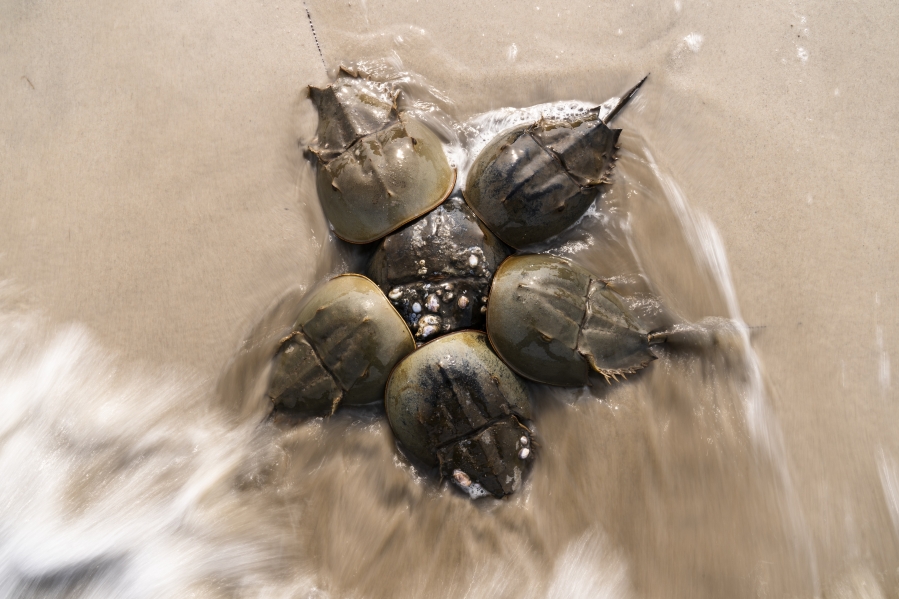The federal government is shutting down the harvest of a species of marine invertebrate in a national wildlife refuge during the spawning season to try to give the animal a chance to reproduce.
Fishermen harvest horseshoe crabs so the animals can be used as bait and so their blood can be used to make medical products. Conservationists have long pushed to limit the harvest of the animals, in part because horseshoe crab eggs are vitally important food for migratory birds.
The U.S. Fish and Wildlife Service issued a ruling on Monday that calls for the end of horseshoe crab harvesting in Cape Romain National Wildlife Refuge in South Carolina from March 15 to July 15.
The service wrote that allowing the harvesting would “materially interfere and detract from the purposes for which the refuge was established and the mission of the National Wildlife Refuge System.” The refuge is is about 66,000 acres (26,700 hectares) including marshes, beaches and islands located about a half hour’s drive from Charleston.
The harvest of horseshoe crabs takes place along the entire East Coast, though most of it occurs in the mid-Atlantic states and New England. Conservation groups said limiting the harvest of the animals in Cape Romain is a step toward improving ecosystems, especially because the refuge is home to numerous species of shorebirds.
One of those species, the red knot, is a focus of conservation groups because it’s listed as threatened under the Endangered Species Act and needs the crab eggs to refuel during its long migration.
“This decision marks the first time a federal agency has curtailed the crab harvest because of its impact on the red knot,” said Catherine Wannamaker, senior attorney at the Southern Environmental Law Center.
The horseshoe crabs themselves are also declining in some of their range. They are valuable because of their blue blood, which can be manufactured to detect pathogens in critical medicines such as vaccines and antibiotics.
The animals harvested for their blood are drained of some of it and returned to the environment, but many inevitably die from the process.



